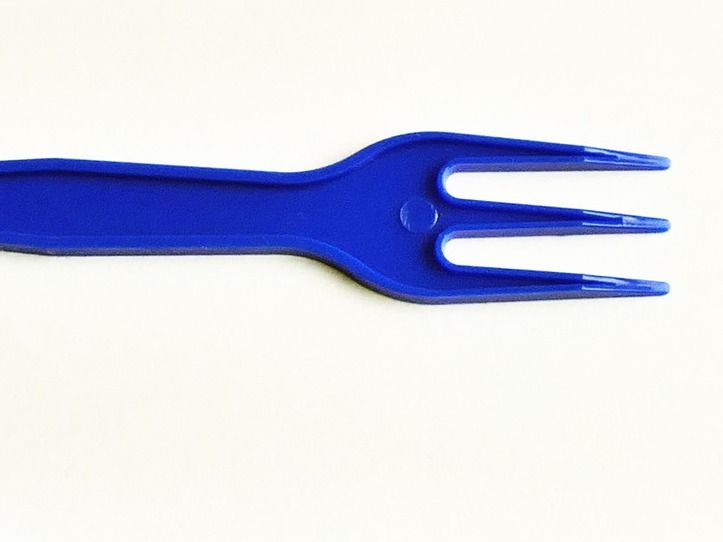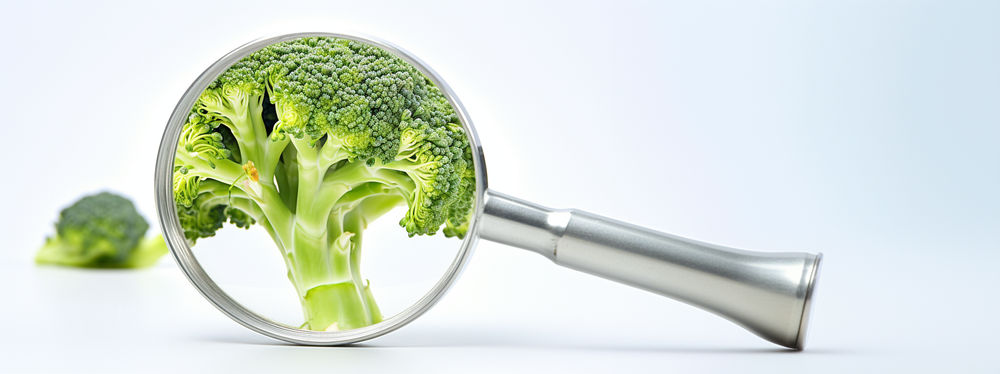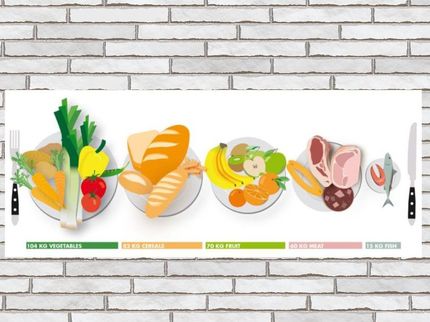EU wants to curb plastic flood with bans
Advertisement
Drinking cocktails with plastic straw?

pixabay/InspiredImages
Picnicking with plastic cutlery? That should soon be a thing of the past - because the EU wants to ban certain plastic products to protect the environment and marine animals. The EU Commission presented a proposal to this effect in May. It also contains numerous other ideas aimed at containing the plastic flood.
On Wednesday, the EU Parliament will vote on a negotiating position on the subject of plastics. After that, a compromise must be reached with the EU member states. Whether the new plastic rules can be pushed through before the European elections in May 2019 is questionable.
The situation is serious. Worldwide, but also in Europe, enormous quantities of plastic are used and then thrown away. According to the EU Commission, only just under a third of plastic waste is collected and recycled. A large part of the remainder ends up on rubbish tips or in the environment. However, plastic disintegrates very slowly and accumulates especially in the sea and on beaches. Up to 85 percent of all waste washed up in the EU is made of plastic - around half of this is disposable waste.
Plastic poses a major threat to birds, fish and other marine animals. They eat it or get tangled up in it. Traces of plastic in fish are also found on people's plates. The EU Commission and the Environment Committee in Parliament have now launched a series of measures to curb plastic waste.
The most perceptible measures for consumers would probably be planned bans on disposable plastic products that are only used once.
These include straws, plastic crockery and cutlery, cotton swabs and balloon holders. Only items for which there are already alternatives from the point of view of the EU Commission are to be banned. For example, plastic drinking straws could be replaced by those made of paper or reusable ones made of harder plastic.
The Environment Committee in the EU Parliament, however, also wants to put light plastic bags and certain foamed plastics on the list of banned items, such as the white boxes for take-away food.
The EU states are to introduce reduction targets for plastic products, which so far cannot be easily replaced by other materials. This applies in particular to containers for
Food: for example, boxes for sandwiches and packaging for fruit, vegetables, desserts or ice cream. By 2025, all member states should also collect at least 90 percent of plastic beverage bottles for recycling, for example with the help of a one-way deposit as in Germany.
Another approach is to educate consumers. In the future, many packaging will bear information on this: on proper disposal and on the potential damage the product could cause if it ends up in the environment. For example, in future consumers could be asked by sign not to let balloons ascend any more. CDU member of parliament Peter Liese rejects this, however. Balloons accounted for a statistically not measurable proportion of the pollution of the oceans, he says. "I therefore find it disproportionate if we spoil the fun of people, especially children."
The Environment Committee also wants to reduce cigarette waste. The filters often contain plastic and a single stub can pollute up to 1000 litres of water. The MEPs want the amount of waste from plastic cigarette filters to be reduced by 80 percent by 2030.
In addition, manufacturers are to share the costs of cleaning up the environment. So far, it is mainly the taxpayers or the tourism industry who are paying. The manufacturers of fishing nets with plastic components should also be asked to pay for disposal.
Greenpeace sees above all a serious shortcoming in the proposals. Greenpeace marine biologist Thilo Maack criticises that the definition of disposable plastic is far too narrow. This would open up a loophole for the plastics industry: "According to the current proposal, companies could simply ignore the reduction targets if they label their products, be it a disposable plastic cup or a straw, as reusable.
The plastics industry, on the other hand, warns against quick shots. Important laws are being pushed through here without assessing the consequences, the European packaging association pack2go explained. Losses in the food sector or problems with food hygiene threaten if plastic consumption is drastically reduced. So far, millions of Europeans have been using packaging for food or drink to take away every day, the association stressed./vio/DP/stk (dpa)
Other news from the department business & finance
Most read news
More news from our other portals
See the theme worlds for related content
Topic world Food safety
Food safety is at the heart of the food and beverage industry. It ensures that the food we eat every day is not only nutritious, but also free of harmful contaminants. From field to plate, the industry monitors and regulates every step of the process with strict quality controls, advanced testing methods and continuous research.

Topic world Food safety
Food safety is at the heart of the food and beverage industry. It ensures that the food we eat every day is not only nutritious, but also free of harmful contaminants. From field to plate, the industry monitors and regulates every step of the process with strict quality controls, advanced testing methods and continuous research.



























































